On the afternoon of 5 July 2025, over 150 doctors and specialists gathered at FV Hospital for the CME workshop on the theme “Multispecialty Approach in the Treatment of Bad Breath and Swallowing Disorders.” The event provided in-depth clinical insights and highlighted the importance of multidisciplinary collaboration to improve outcomes for conditions that, though often overlooked, significantly impact patients’ quality of life.
Halitosis: From a “Sensitive” Concern to a Clinical Warning Sign
Nguyen Thanh Tung, MD, PhD, Head of Maxillofacial Surgery & Dental Department at FV Hospital, opened the session with his presentation, “Decoding Halitosis: The Role of Dental and Maxillofacial Specialists in Diagnosis and Management.”
His talk provided an in-depth analysis of oral-related causes of bad breath – such as periodontitis, tooth decay, coated tongue, and salivary gland disorders – which are among the most common contributors. Dr Tung also underlined the importance of comprehensive dental examinations to determine the root cause and introduced advanced treatment options that can effectively control and significantly improve this condition.
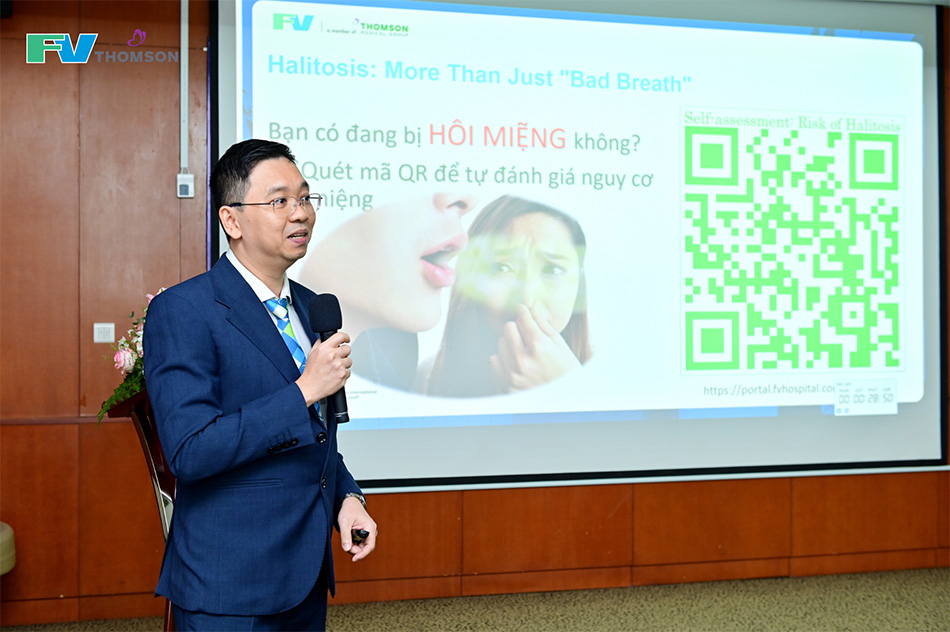
Nguyen Thanh Tung, MD, PhD, presenting on the most common oral causes of bad breath.
Following this, Vo Cong Minh, MD, PhD, Head of ORL Department at FV Hospital, delivered a presentation on the role of sinonasal diseases, tonsillitis, and laryngopharyngeal reflux as often overlooked but significant surgical causes of chronic halitosis. He stressed that although these conditions are often overlooked, they account for a considerable proportion of persistent bad breath cases. Dr Minh also outlined an effective clinical approach to accurately identify the underlying cause and avoid unnecessary treatments.
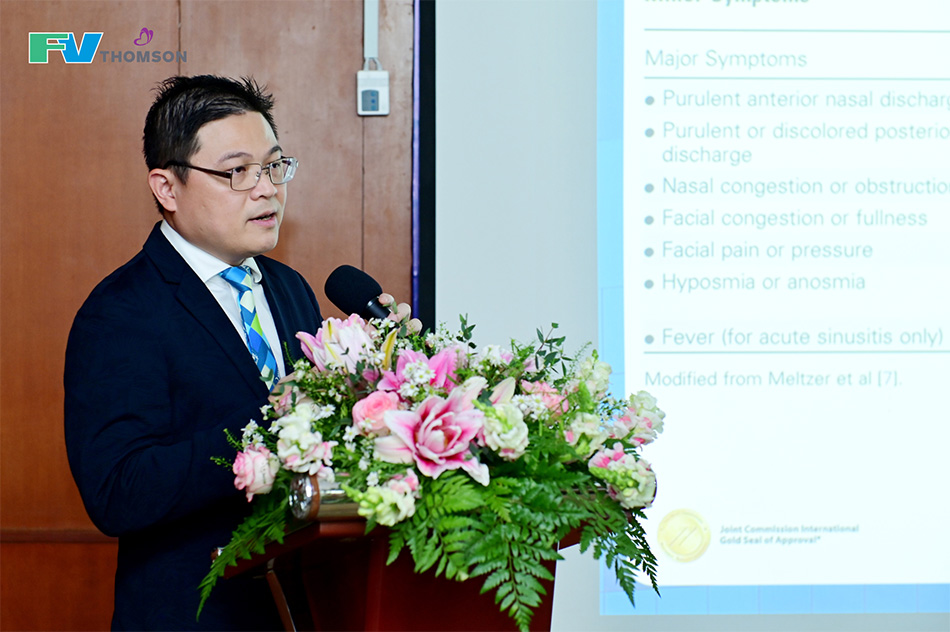
Vo Cong Minh, MD, PhD shared practical insights into sinonasal diseases, tonsillitis, and laryngopharyngeal reflux as key underlying causes of chronic halitosis.
From an internal medicine perspective, Specialist Level II, Bui Nhuan Quy, MD, MSc, Head of Gastroenterology & Hepatology at FV Hospital, presented on the topic “Can Bad Breath and Digestive Issues Be Fully Resolved?” His talk focused on gastrointestinal causes – such as reflux, gastritis, ulcers, and H. pylori infection – conditions that often progress silently but contribute to persistent and hard-to-manage bad breath. Dr Quy emphasised the importance of a coordinated treatment approach, combining gastroenterology with other specialties to create comprehensive management plans aimed at fully resolving halitosis linked to digestive disorders.
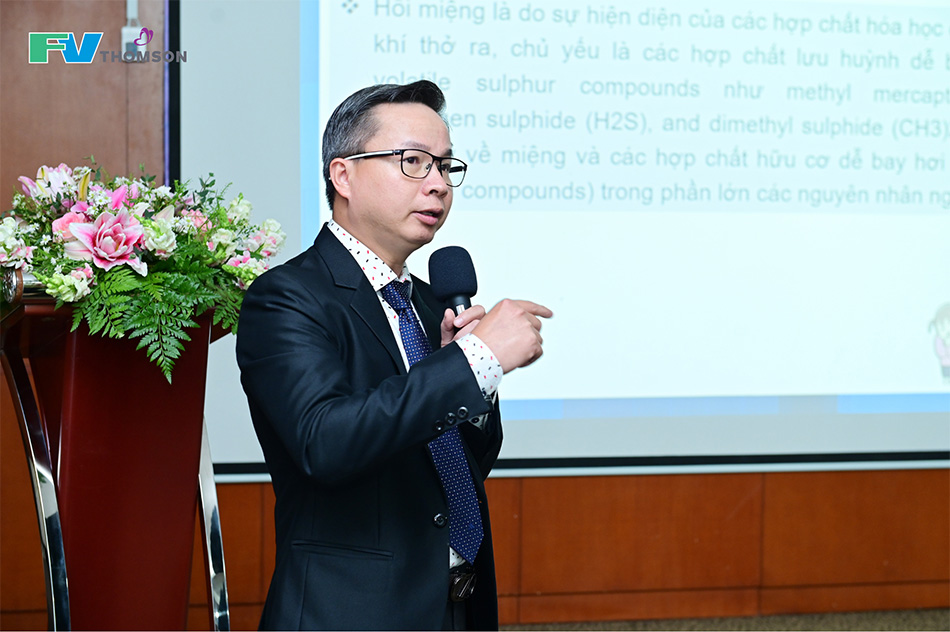
Specialist Level II, Bui Nhuan Quy, MD, MSc discussed oesophageal and gastric causes that contribute to persistent and hard-to-manage halitosis.
Swallowing Disorders – A Clinical Challenge in Post-Stroke Care and Recovery
The second part of the workshop focused on swallowing disorders – a functional impairment that may lead to malnutrition, aspiration pneumonia, and severely reduced quality of life, particularly in post-stroke patients.
Le Khanh Dien, MD, PhD, Head of Rehabilitation Department at An Binh Hospital and former Vice President of Asia Pacific Society of Speech, Language and Hearing (2022-2023), presented on “Dysphagia After Stroke: An Updated Perspective”. He shared insights from international research on the importance of swallowing assessment and speech-language rehabilitation. Dr Dien emphasised that early detection of dysphagia, combined with timely rehabilitative therapy, can help patients regain the ability to eat and speak – simple actions that are vital for restoring independence and reintegration into daily life and society.
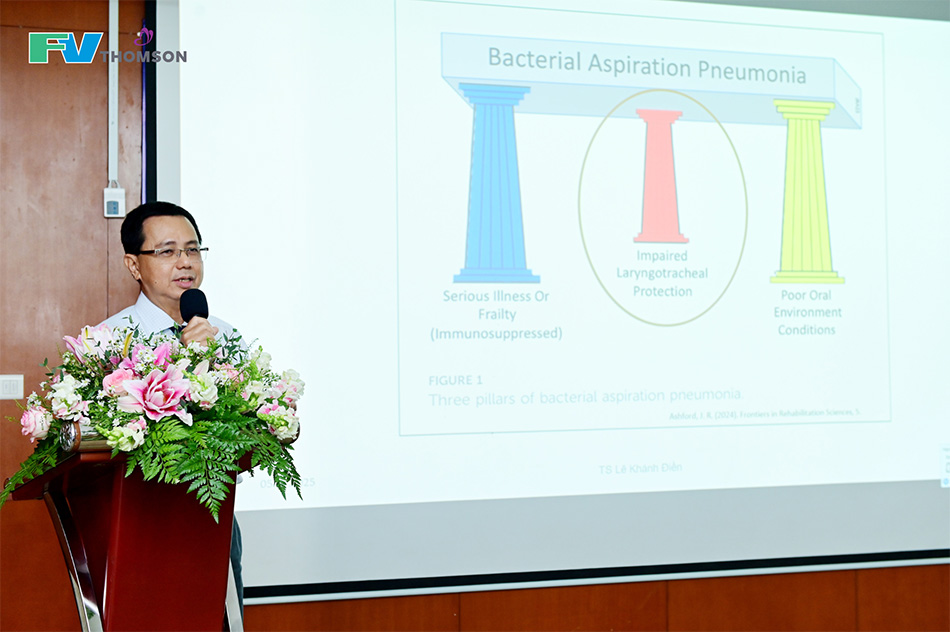
Le Khanh Dien, MD, PhD, presented international medical updates on post-stroke dysphagia.
Following this, Specialist Level II, Nguyen Viet Quynh Thu, MD, MSc, Head of Nutrition and Dietetics Department at FV Hospital, delivered a detailed session on managing nutrition for patients with swallowing disorders in her talk “Nutrition in Stroke Patients with Swallowing Disorder.” She covered key aspects including the selection of appropriate food textures, strategies to minimise aspiration risk, and the prevention of malnutrition. Her presentation provided practical recommendations to improve quality of life and support effective recovery.

Specialist Level II, Nguyen Viet Quynh Thu, MD, MSc highlighted the vital role of nutrition in managing swallowing disorders.
The final part of the workshop explored oral and digestive health solutions presented by sponsors Morinaga and D.O.E. These sessions provided valuable insights for both specialists and attendees. A live Q&A session followed, offering participants the opportunity to engage directly with the speakers, discuss specific clinical cases, and gain practical knowledge for their medical practice.
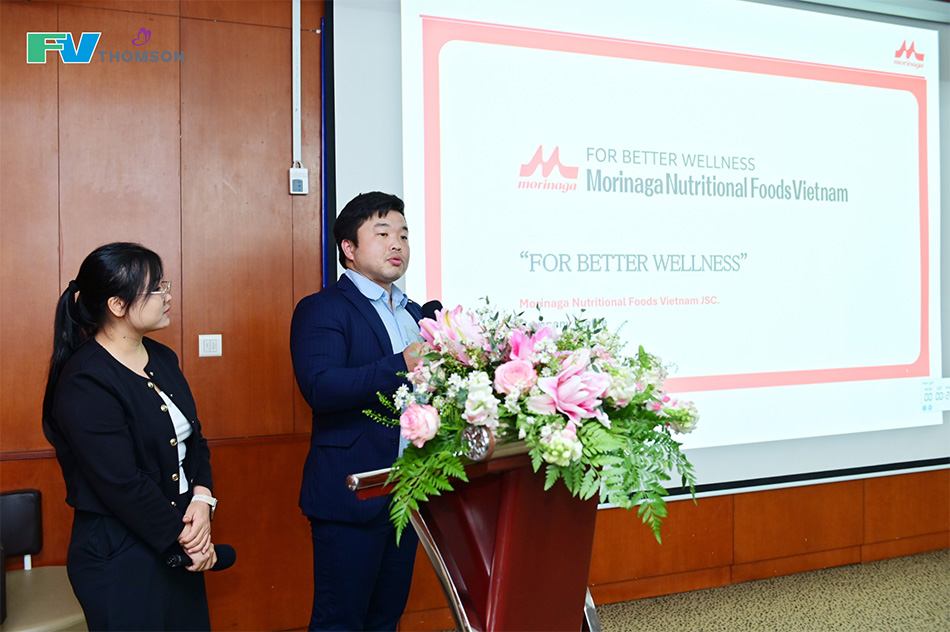
The presentation on nutritional solutions was delivered by sponsor Morinaga.
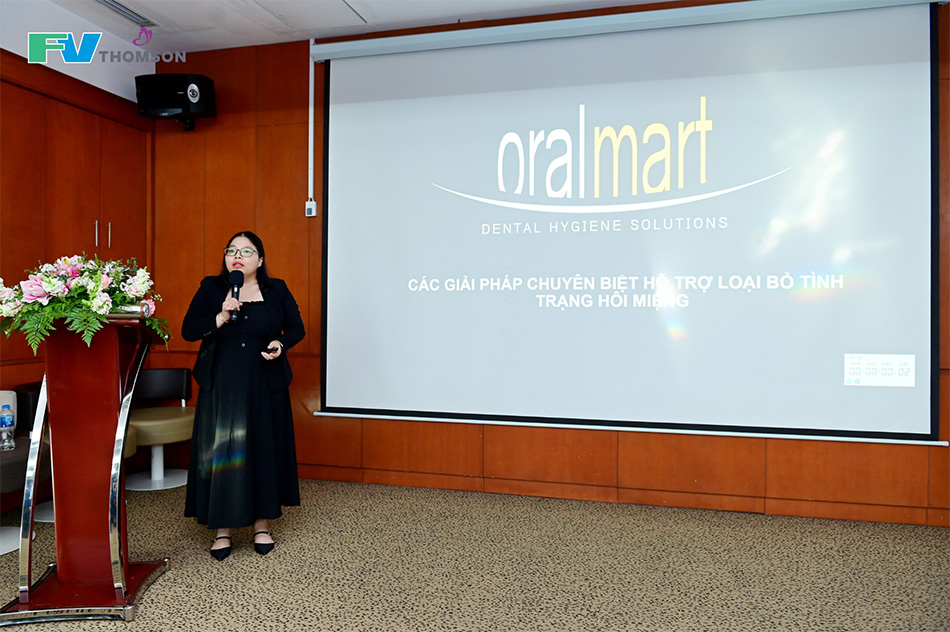
Sponsor D.O.E. delivered a presentation on oral care solutions.
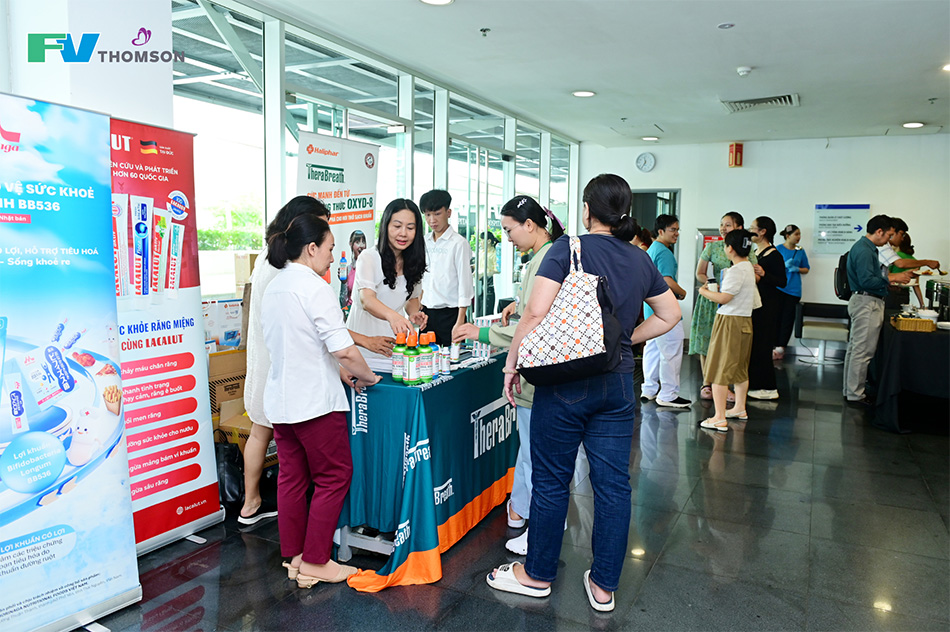
Sponsor Haliphar hosted a product showcase booth for guests at the event.
Through this event, FV Hospital emphasised that conditions such as halitosis and swallowing disorders should not be underestimated or treated in isolation. Instead, they require a multidisciplinary approach to accurately diagnose root causes, provide comprehensive care, and improve patients’ long-term quality of life.
With its practical theme, the presence of leading experts, and multidimensional content, the workshop not only made a strong academic impression but also served as a bridge connecting various specialties – including Maxillo – Facial Surgery & Dental, ENT, Gastroenterology, Nutrition, and Rehabilitation. Once again, FV Hospital reaffirmed its pioneering role in continuous medical education, promoting knowledge sharing and enhancing treatment quality for the health and well-being of patients.

 Vi
Vi 












